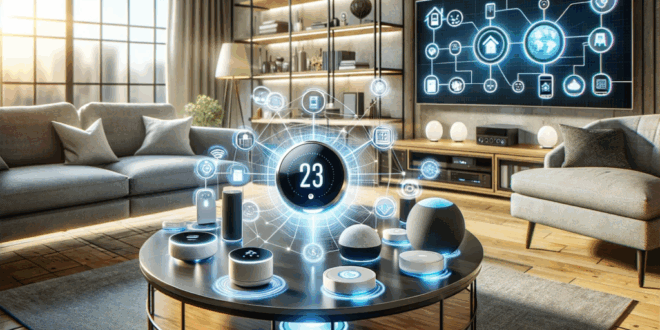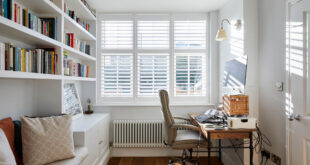Welcome to the Connected Living Room: Your Smart Home Journey Begins Here
Imagine stepping into your living room and, with a simple voice command or a tap on your smartphone, the lights dim to the perfect ambiance, your favorite playlist starts streaming through the speakers, and the temperature adjusts to your ideal comfort level. This isn’t some futuristic fantasy; it’s the reality you can achieve with a smart home hub. But with so many options available, choosing the right hub and understanding how to integrate it into your living room can feel overwhelming. Don’t worry, we’re here to guide you through every step of the process, from understanding the basics to mastering advanced integrations.
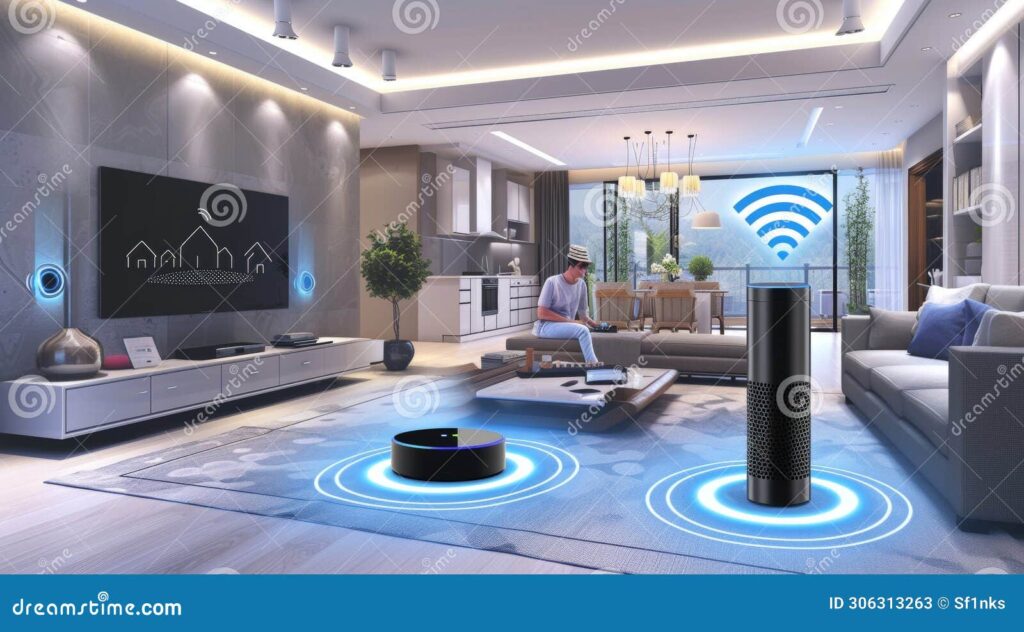
The living room, often the heart of the home, is the perfect place to start your smart home transformation. It’s where we relax, entertain, and spend quality time with loved ones. A smart home hub acts as the central nervous system, connecting and controlling all your compatible smart devices, making your living room more convenient, comfortable, and secure.
What Exactly is a Smart Home Hub?
Think of a smart home hub as the brain of your smart home. It’s a device that connects to your Wi-Fi network and uses various wireless protocols (like Zigbee, Z-Wave, Bluetooth, and Wi-Fi) to communicate with and control your smart devices. These devices can include smart lights, thermostats, door locks, security cameras, speakers, and even appliances.
The hub allows you to control these devices from a single app or through voice commands using virtual assistants like Amazon Alexa, Google Assistant, or Apple Siri. This centralized control simplifies your smart home experience, eliminating the need to juggle multiple apps or remotes.
Why You Need a Smart Home Hub for Your Living Room
- Centralized Control: Manage all your smart devices from a single point, simplifying your smart home experience.
- Automation: Create routines and schedules to automate tasks, such as turning on the lights at sunset or adjusting the thermostat based on your preferences.
- Voice Control: Control your living room with your voice using virtual assistants like Alexa, Google Assistant, or Siri.
- Enhanced Security: Integrate security cameras, door locks, and motion sensors for enhanced home security.
- Energy Savings: Control your thermostat and lighting to reduce energy consumption and lower your utility bills.
- Improved Convenience: Enjoy a more convenient and comfortable living room experience with automated tasks and personalized settings.
Choosing the Right Smart Home Hub for Your Living Room
Selecting the right smart home hub is crucial for a seamless and enjoyable smart home experience. Here are some key factors to consider:
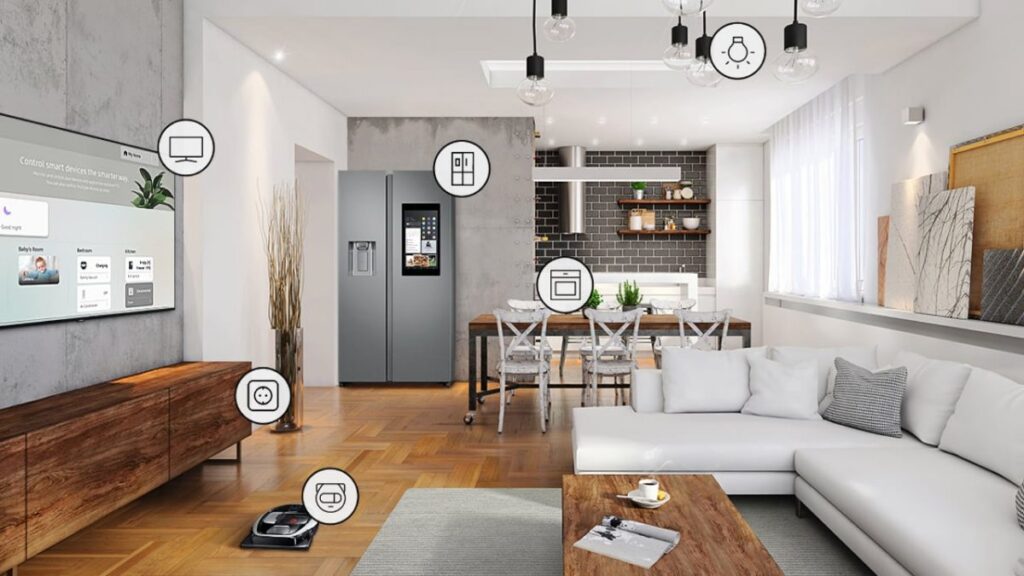
Compatibility
The most important factor is compatibility. Ensure that the hub you choose supports the devices you already own or plan to purchase. Check the hub’s specifications to see which wireless protocols it supports (Zigbee, Z-Wave, Bluetooth, Wi-Fi) and which smart home ecosystems it’s compatible with (Amazon Alexa, Google Assistant, Apple HomeKit).
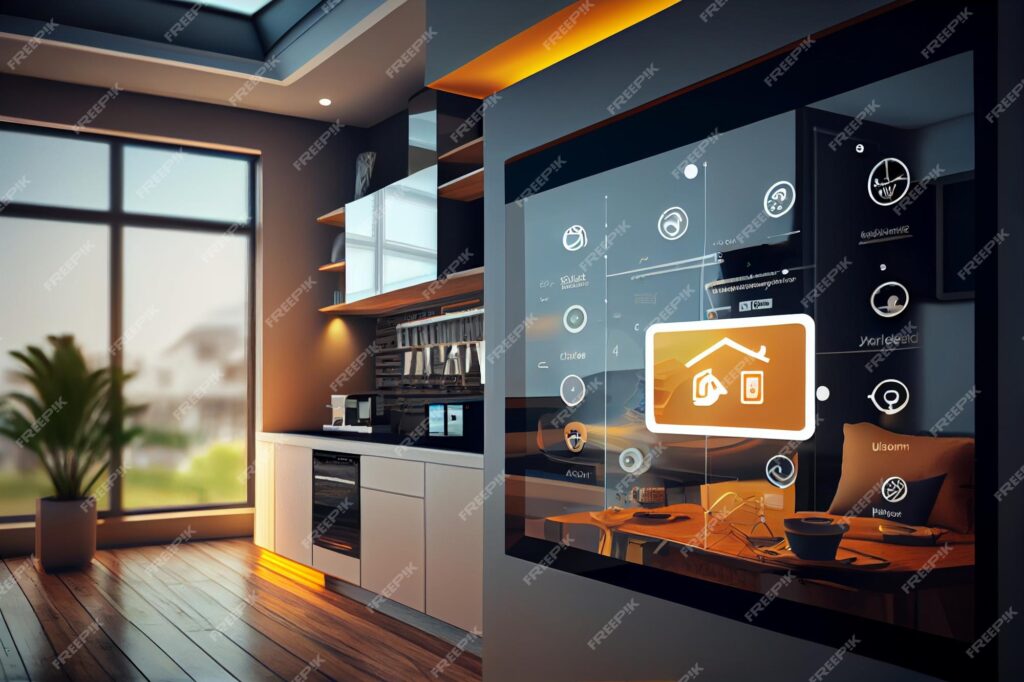
Consider the brands and devices you’re likely to invest in down the road. Do you prefer Philips Hue lighting? Nest thermostats? Ring security cameras? Make sure the hub you choose plays nicely with your preferred ecosystem. Reading user reviews and checking compatibility lists on the manufacturer’s website can be invaluable.
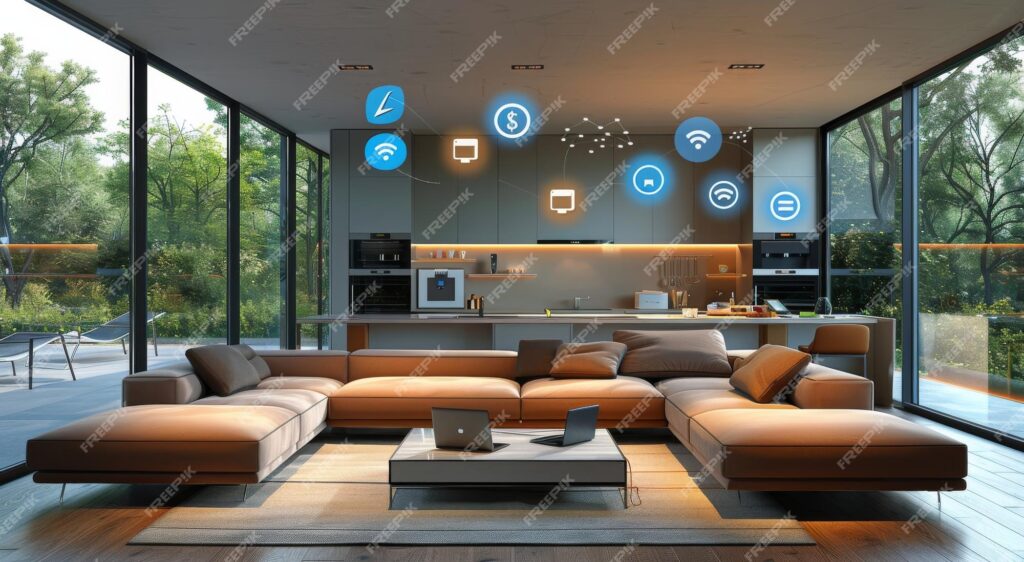
Ecosystem and Voice Assistant Integration
Most smart home hubs are designed to work seamlessly with popular voice assistants like Amazon Alexa, Google Assistant, and Apple Siri. If you already use one of these voice assistants, choose a hub that is compatible with your preferred ecosystem. This will allow you to control your living room with voice commands.
Think about your daily routine. Do you frequently use Alexa to set timers and play music? Are you a dedicated Google Assistant user for managing your calendar and getting news updates? Or are you fully invested in the Apple ecosystem with HomeKit and Siri? Choosing a hub that integrates seamlessly with your preferred voice assistant will significantly enhance your smart home experience.

Features and Functionality
Different hubs offer different features and functionalities. Some hubs have built-in voice assistants, while others require a separate smart speaker. Some hubs offer advanced automation capabilities, while others are more basic.
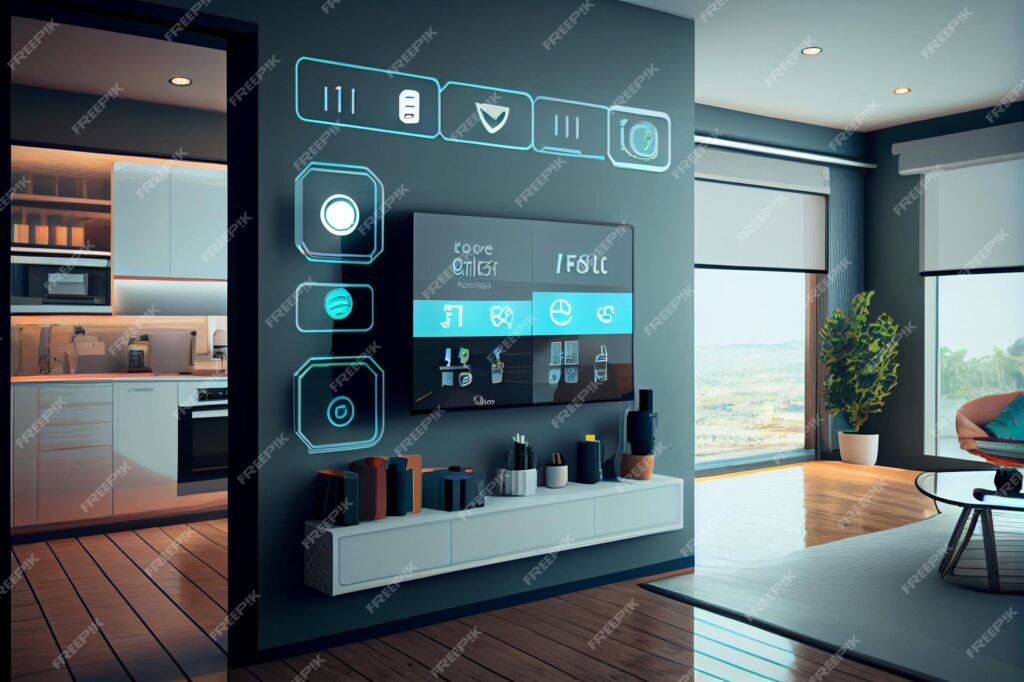
Consider what features are most important to you. Do you want a hub with built-in voice control? Do you need advanced automation capabilities for complex routines? Do you want a hub that can control your entire home, or just your living room? Once you know what you need, you can narrow down your options.
Ease of Use
A smart home hub should be easy to set up and use. Look for a hub with a user-friendly app and clear instructions. Some hubs require technical expertise to set up, while others are more plug-and-play.
Read user reviews to get a sense of how easy a particular hub is to set up and use. Consider your own technical skills and choose a hub that you feel comfortable working with. Remember, a smart home is supposed to make your life easier, not more complicated.
Price
Smart home hubs range in price from relatively inexpensive to quite expensive. Consider your budget and choose a hub that offers the best value for your money.
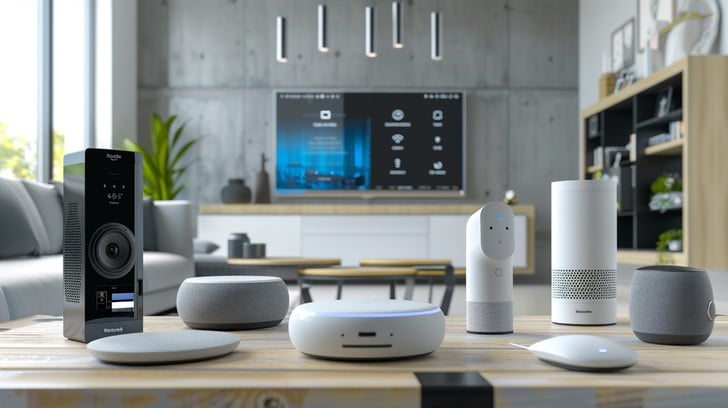
Don’t automatically assume that the most expensive hub is the best. Sometimes, a less expensive hub can offer all the features you need at a more affordable price. Do your research and compare prices before making a decision.
Popular Smart Home Hubs for the Living Room
Here are a few popular smart home hubs that are well-suited for living room use:
Amazon Echo (4th Gen)
The Amazon Echo (4th Gen) is a popular choice for its built-in Alexa voice assistant, Zigbee support, and affordable price. It can control a wide range of smart devices, including lights, thermostats, and door locks. Its spherical design is also aesthetically pleasing and fits well in most living room settings.
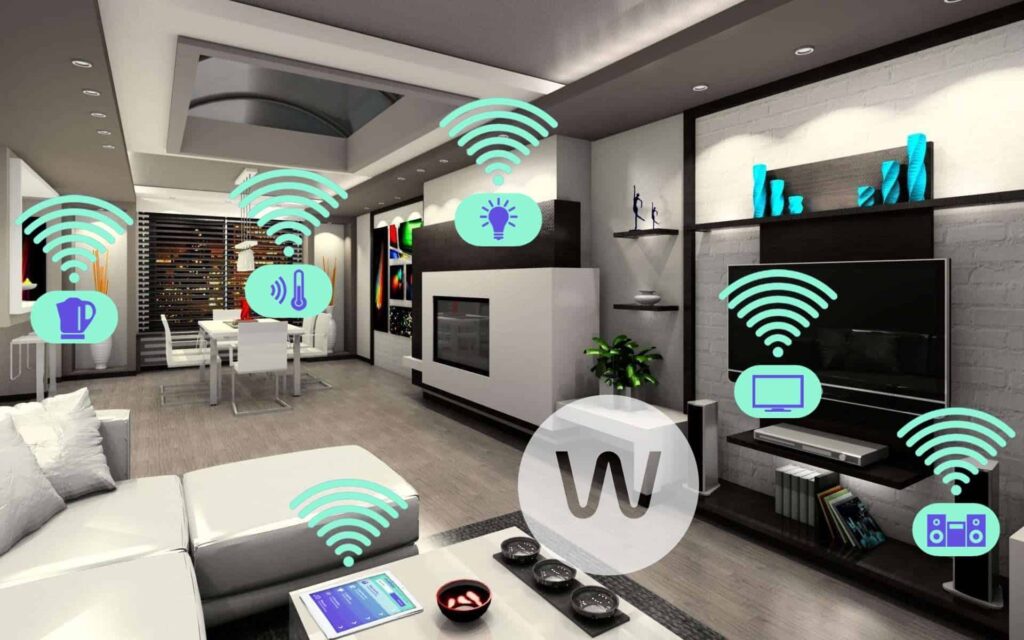
Pros: Built-in Alexa, Zigbee support, affordable, easy to use.
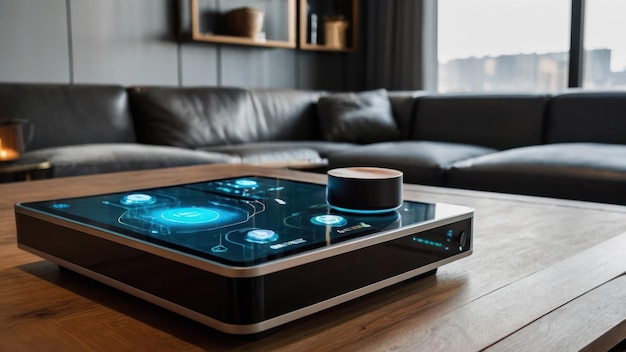
Cons: Limited Z-Wave support, requires an Amazon account.
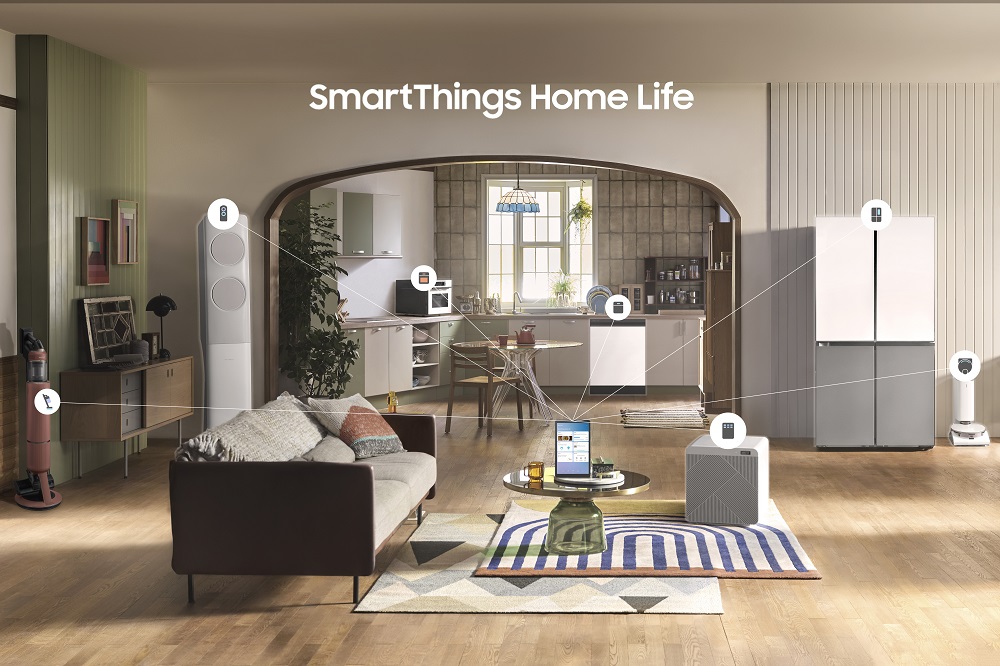
Google Nest Hub Max
The Google Nest Hub Max is a smart display with a built-in Google Assistant. It’s perfect for displaying photos, watching videos, and controlling your smart home devices. It also has a built-in camera for video calls and security monitoring.
Pros: Built-in Google Assistant, smart display, built-in camera, easy to use.
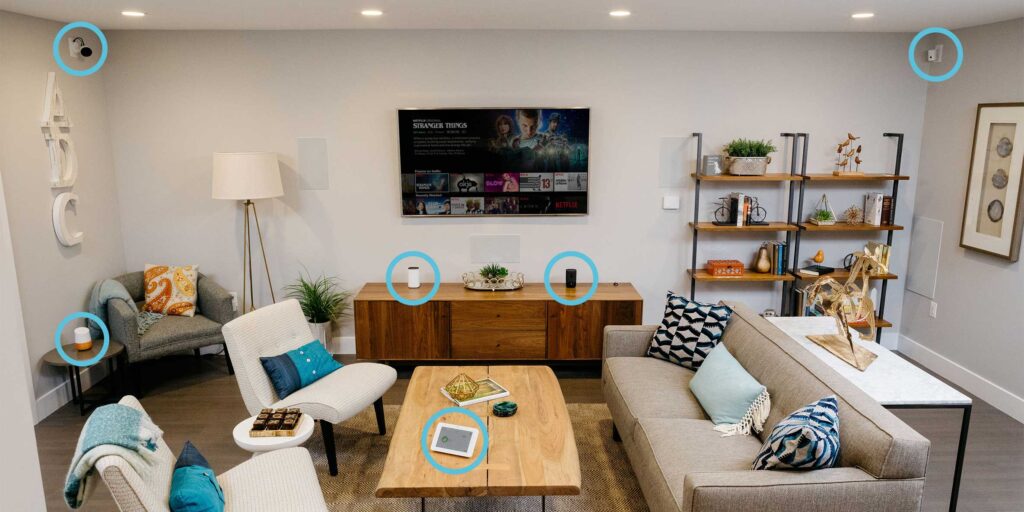
Cons: Limited Z-Wave support, requires a Google account, privacy concerns with the built-in camera.
Samsung SmartThings Hub
The Samsung SmartThings Hub is a versatile hub that supports a wide range of wireless protocols, including Zigbee, Z-Wave, and Bluetooth. It’s compatible with a wide range of smart devices and offers advanced automation capabilities.
Pros: Wide range of protocol support, compatible with many devices, advanced automation capabilities.
Cons: Can be more complex to set up than other hubs, requires a Samsung account.
Apple HomePod Mini
If you’re deeply invested in the Apple ecosystem, the HomePod Mini is a great choice. It seamlessly integrates with Apple HomeKit and allows you to control your smart home devices using Siri voice commands. Its compact size and stylish design make it a discreet addition to any living room.
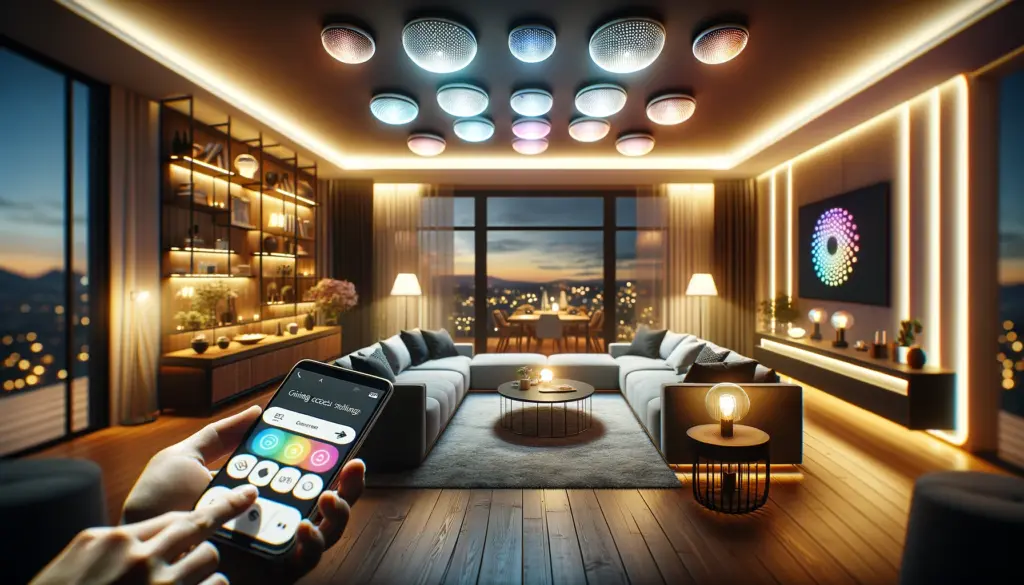
Pros: Seamless integration with Apple HomeKit, Siri voice control, compact design.
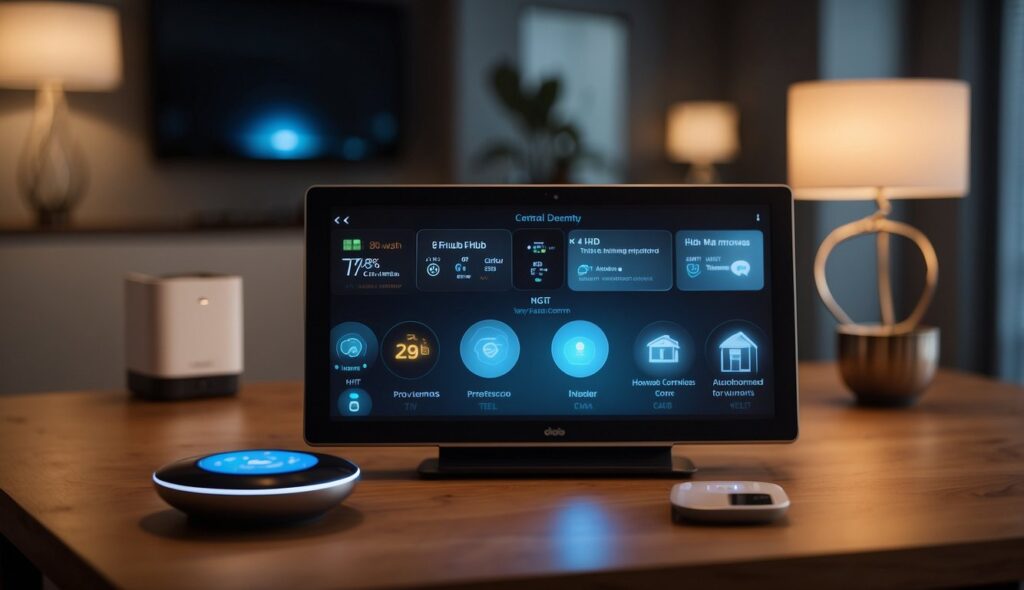
Cons: Limited compatibility with non-Apple devices, requires an Apple account.
Setting Up Your Smart Home Hub in the Living Room
Once you’ve chosen your smart home hub, it’s time to set it up. The setup process will vary depending on the hub you choose, but here are some general steps:
- Connect the hub to your Wi-Fi network. Follow the instructions in the hub’s manual to connect it to your Wi-Fi network.
- Download the hub’s app. Download the hub’s app from the App Store or Google Play Store.
- Create an account. Create an account in the hub’s app.
- Add your smart devices. Follow the instructions in the app to add your smart devices to the hub. This usually involves putting your devices into pairing mode and then scanning for them within the app.
- Configure your devices. Once you’ve added your devices, you can configure them in the app. This includes setting names, creating routines, and customizing settings.
Tips for a Smooth Setup
- Read the manual: Familiarize yourself with the hub’s features and setup process.
- Update the firmware: Ensure your hub has the latest firmware updates for optimal performance.
- Position the hub strategically: Place the hub in a central location in your living room for optimal signal strength and coverage.
- Troubleshoot connectivity issues: If you’re having trouble connecting devices, check your Wi-Fi network and make sure the devices are compatible with the hub.
Integrating Smart Devices into Your Living Room
Now that your smart home hub is set up, it’s time to integrate your smart devices into your living room. Here are some popular smart devices for the living room:
Smart Lighting
Smart lighting can transform your living room ambiance with customizable colors, dimming options, and automated schedules. Control your lights with your voice, smartphone, or create scenes for different activities like movie night or reading.
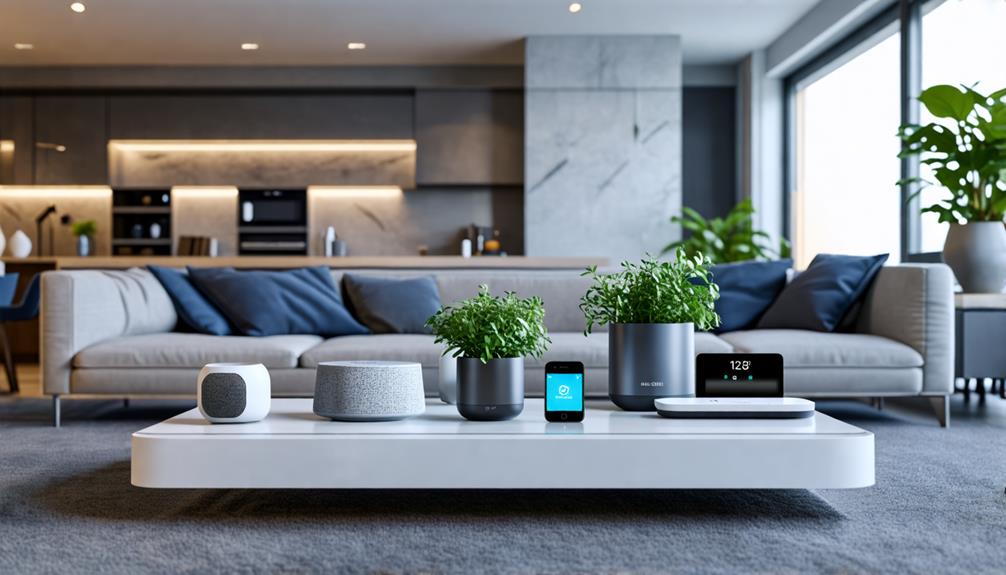
Popular options include Philips Hue, LIFX, and TP-Link Kasa smart bulbs. These bulbs connect directly to your Wi-Fi network or through a hub like Philips Hue Bridge. You can control them individually or group them together to create scenes.
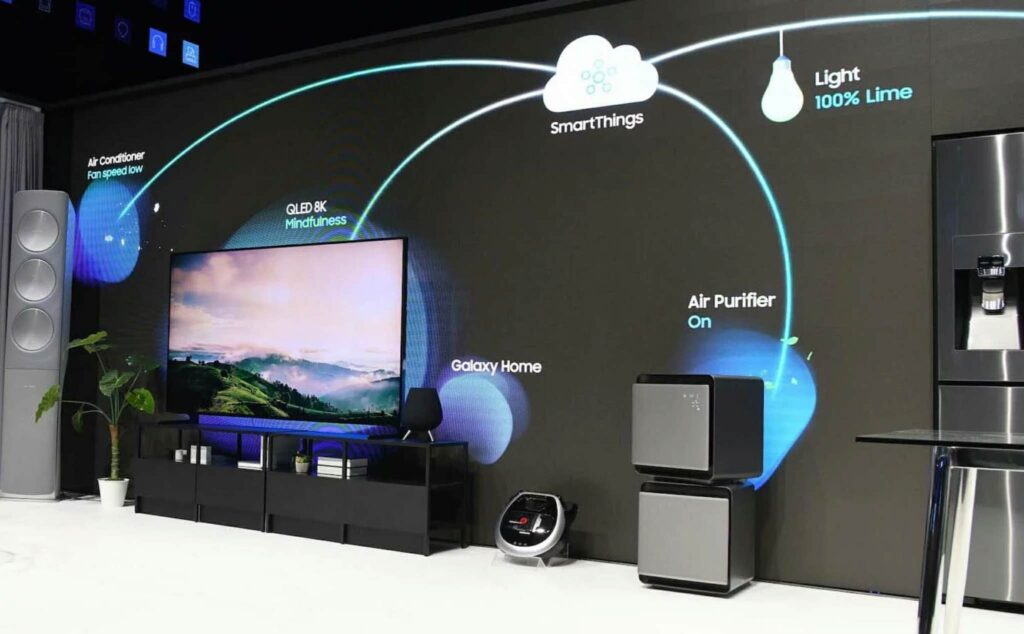
Smart Thermostats
Smart thermostats like Nest and Ecobee allow you to control your living room temperature remotely and automate temperature adjustments based on your schedule or preferences. Save energy and ensure your living room is always comfortable.
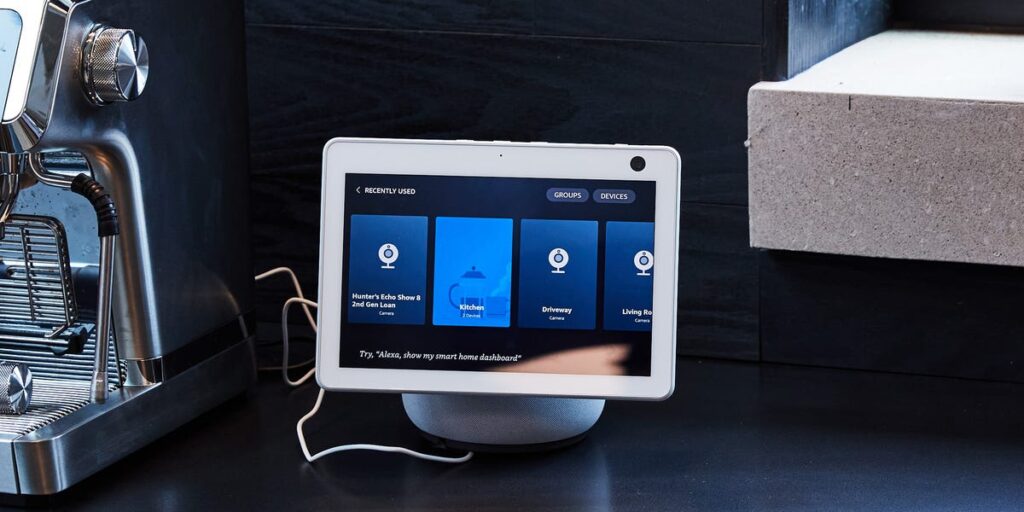
These thermostats learn your habits and automatically adjust the temperature to save energy. You can also control them with your voice or through the app.
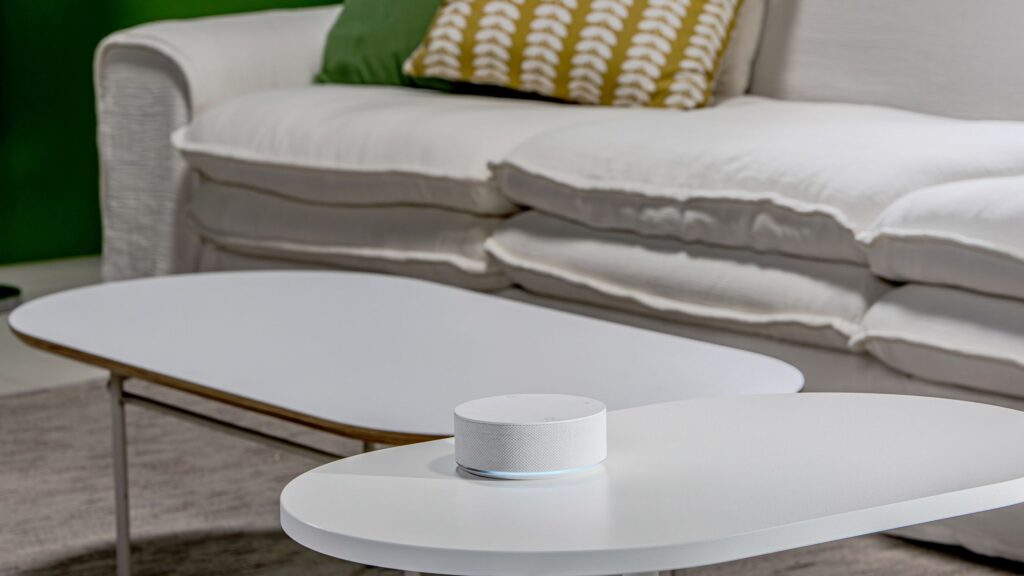
Smart Entertainment Systems
Control your TV, sound system, and streaming devices with your voice or smartphone. Integrate your entertainment system with your smart home hub for a seamless entertainment experience.
Devices like Roku, Apple TV, and Amazon Fire TV Stick can be controlled with your voice through your smart home hub. You can also use smart remotes like Logitech Harmony to control multiple devices with a single remote.
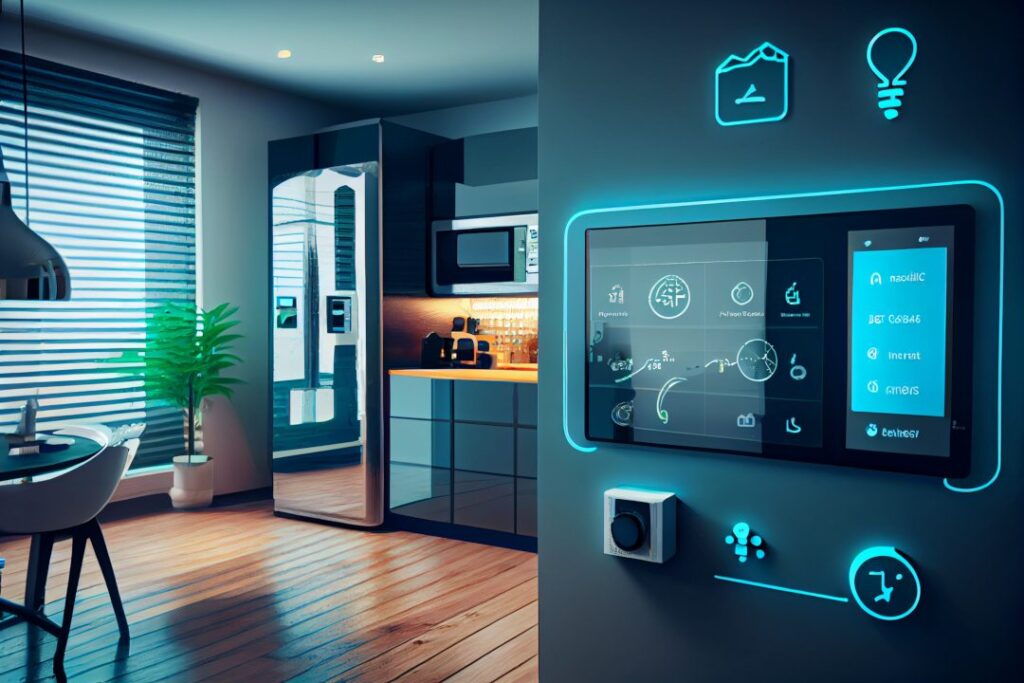
Smart Security Systems
Enhance your living room security with smart security cameras, door sensors, and motion sensors. Monitor your living room remotely and receive alerts if there’s any suspicious activity.
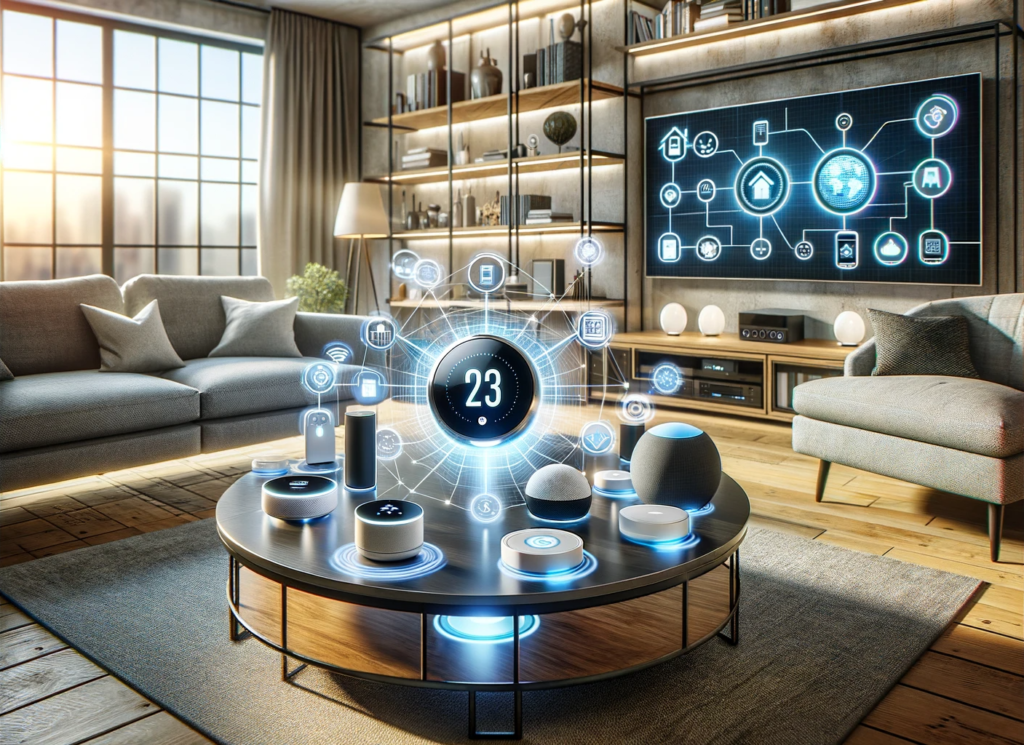
Ring, Arlo, and Nest offer a variety of smart security cameras and sensors that can be integrated with your smart home hub. You can view live video feeds, receive motion alerts, and even communicate with visitors through the camera.
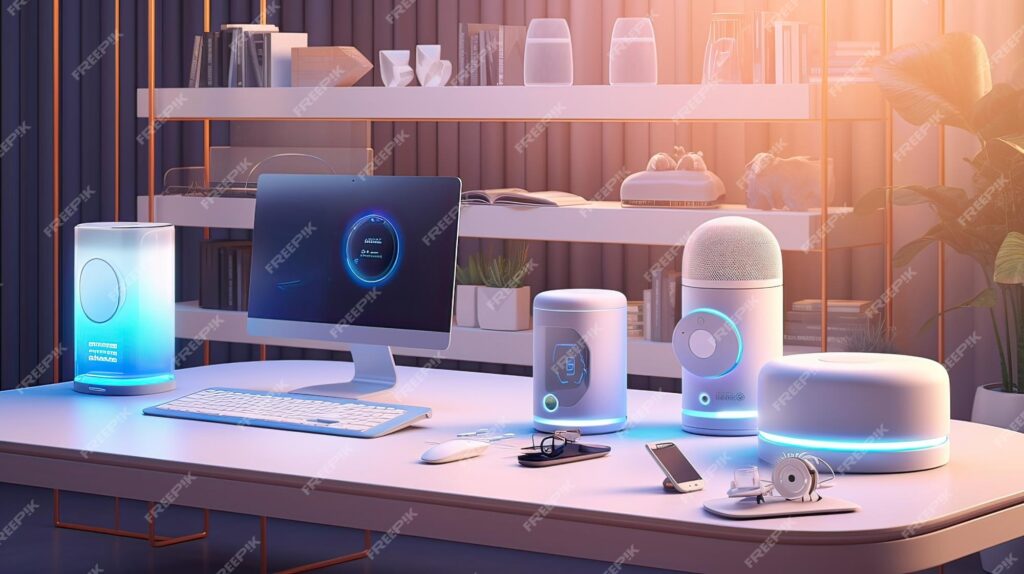
Smart Blinds and Shades
Automate your blinds and shades to control natural light and privacy in your living room. Set schedules for opening and closing blinds based on the time of day or sunlight levels.

Somfy and Lutron offer a variety of smart blinds and shades that can be controlled with your smart home hub. You can also use voice commands to open and close your blinds.
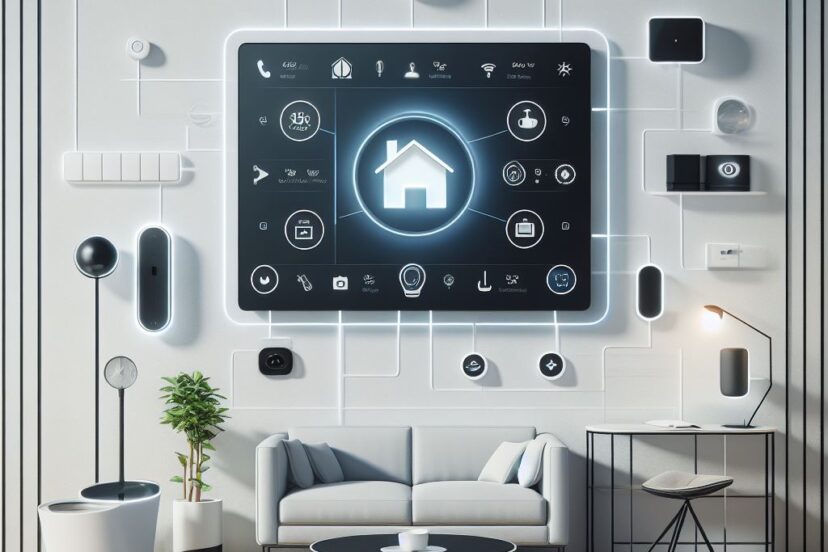
Creating Smart Home Routines for Your Living Room
One of the most powerful features of a smart home hub is the ability to create routines. Routines are a series of actions that are triggered by a single command or event. Here are some examples of smart home routines for your living room:
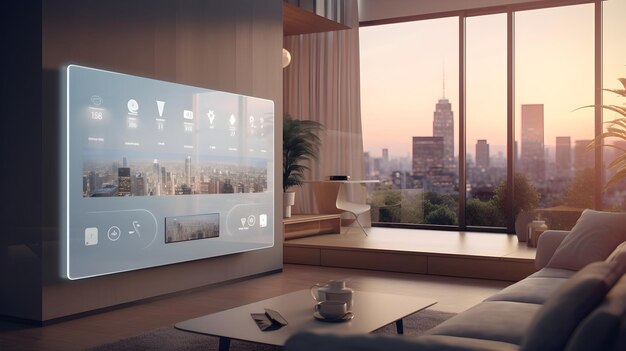
“Movie Night” Routine
This routine dims the lights, closes the blinds, turns on the TV, and starts playing your favorite movie. You can trigger this routine with a voice command like “Alexa, start movie night.”
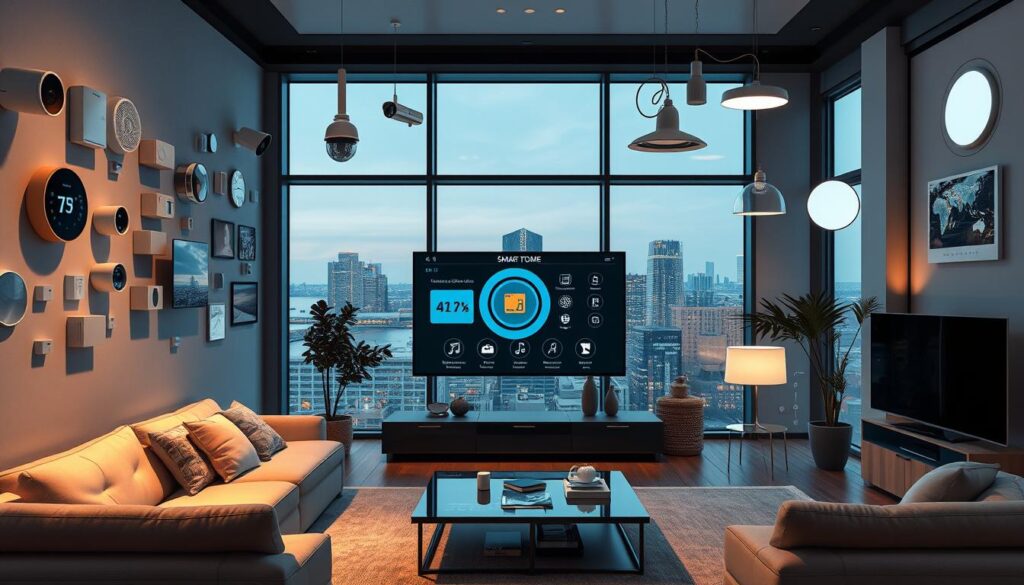
“Relaxation” Routine
This routine dims the lights, plays calming music, and adjusts the thermostat to a comfortable temperature. You can trigger this routine with a voice command like “Hey Google, it’s time to relax.”
“Good Morning” Routine
This routine opens the blinds, turns on the lights, and starts playing your favorite news podcast. You can trigger this routine automatically at a specific time each morning.
“Leaving Home” Routine
This routine turns off all the lights, locks the door, and sets the thermostat to an energy-saving temperature. You can trigger this routine with a voice command or automatically when you leave your home.
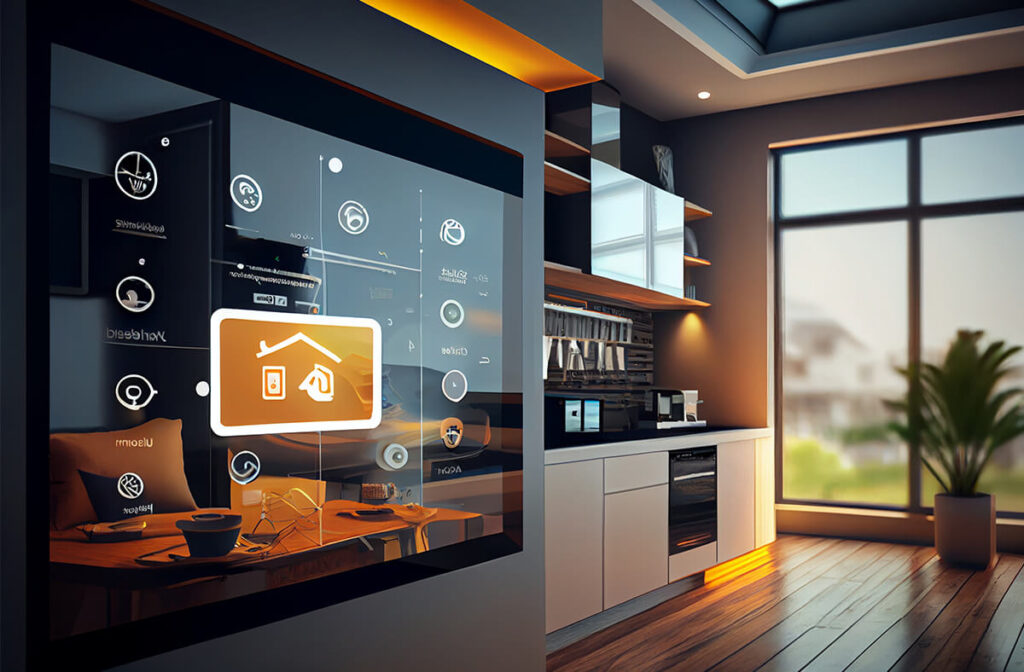
Troubleshooting Common Smart Home Hub Issues
Even with the best smart home setup, you may encounter some issues from time to time. Here are some common problems and how to troubleshoot them:
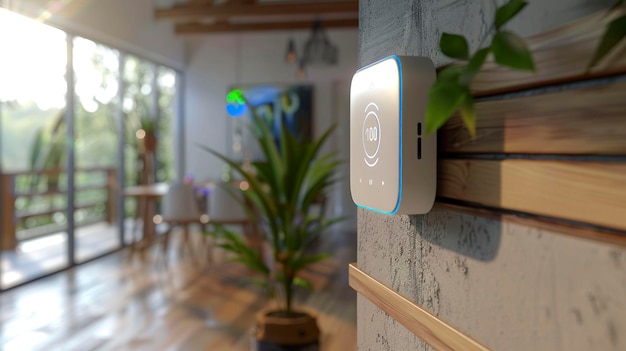
Device Connectivity Issues
If a device is not connecting to your hub, try these steps:
- Make sure the device is compatible with the hub.
- Check the device’s battery level.
- Ensure the device is within range of the hub.
- Restart the device and the hub.
- Factory reset the device and try adding it again.
Voice Control Problems
If you’re having trouble controlling your devices with your voice, try these steps:
- Make sure your voice assistant is properly configured and connected to your hub.
- Check your internet connection.
- Rephrase your voice command.
- Retrain your voice assistant to recognize your voice.
Automation Issues
If your routines are not working as expected, try these steps:
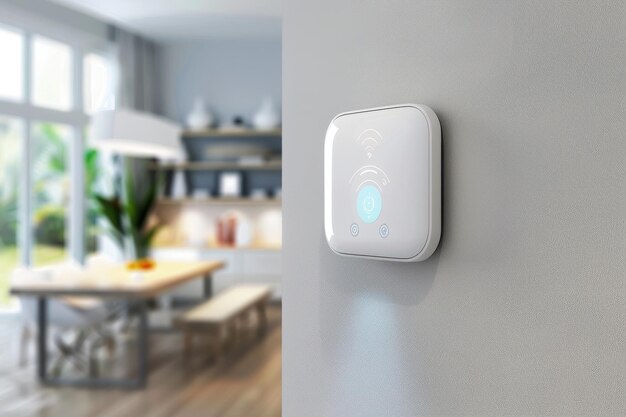
- Double-check the routine settings.
- Make sure all the devices in the routine are connected to the hub.
- Restart the hub.
- Delete and recreate the routine.
The Future of Smart Home Hubs in the Living Room
The future of smart home hubs is bright, with advancements in technology constantly improving their capabilities. Here are some trends to watch for:
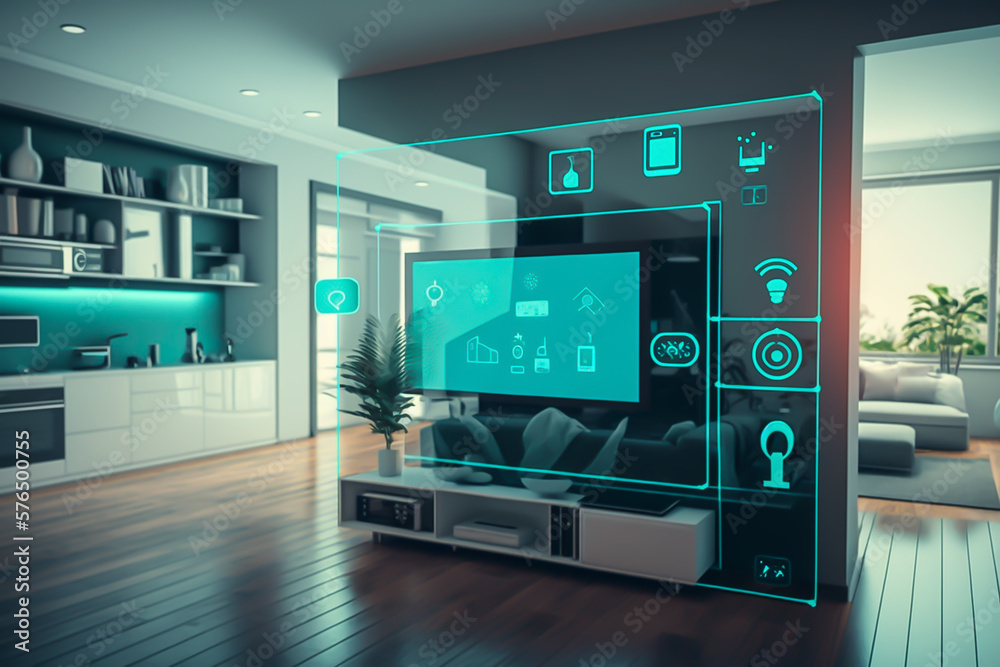
Improved Interoperability
The Matter standard aims to improve interoperability between different smart home devices and ecosystems. This will make it easier to connect and control devices from different manufacturers with a single hub.
Artificial Intelligence (AI) Integration
AI will play an increasingly important role in smart home hubs, allowing them to learn your preferences and automate tasks more intelligently. AI-powered hubs will be able to predict your needs and proactively adjust your living room environment.
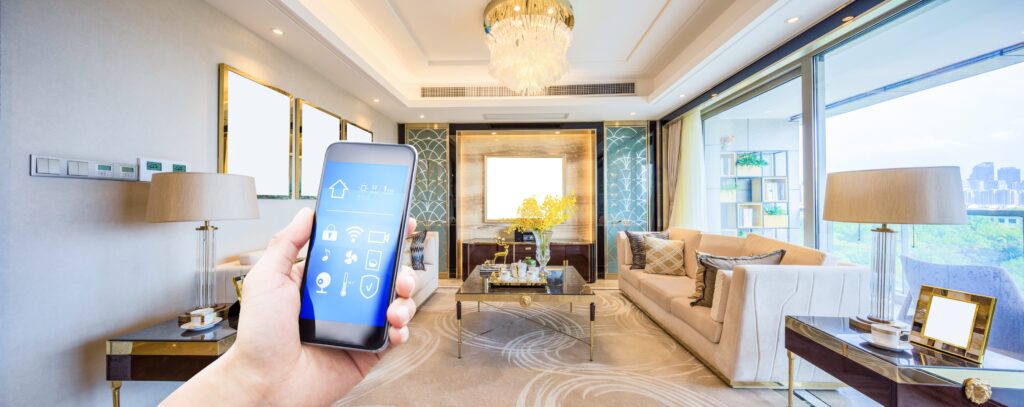
Enhanced Security Features
Smart home hubs will continue to evolve with enhanced security features to protect your privacy and prevent unauthorized access to your devices. Biometric authentication and end-to-end encryption will become more common.
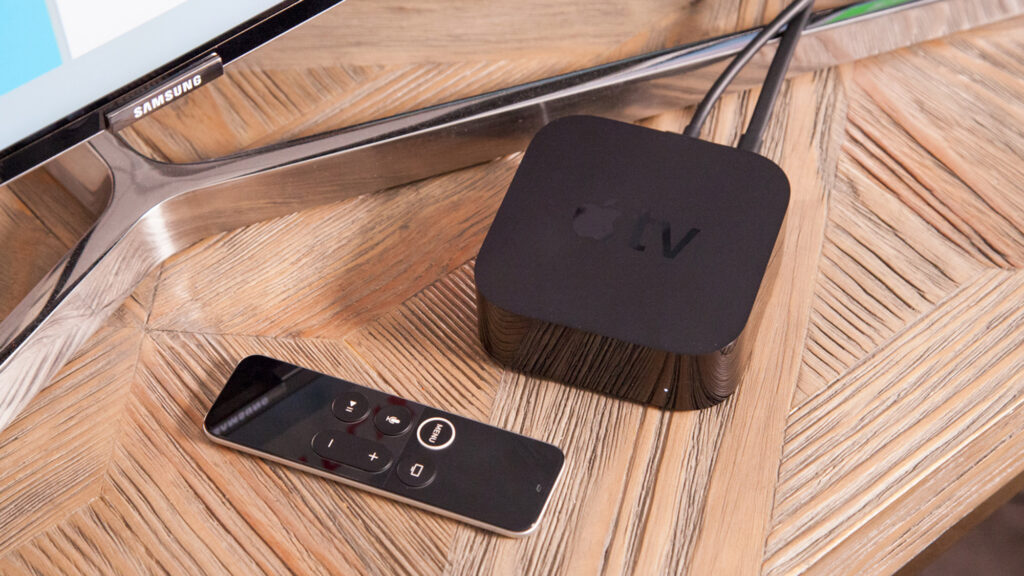
More Seamless Integration
Smart home hubs will become more seamlessly integrated into our homes, with hidden sensors and embedded technology that blends into the background. The focus will be on creating a more intuitive and natural smart home experience.
Conclusion: Transforming Your Living Room into a Smart Haven
A smart home hub can transform your living room into a convenient, comfortable, and secure space. By choosing the right hub and integrating compatible smart devices, you can create a personalized smart home experience that enhances your daily life. From automated lighting and temperature control to voice-activated entertainment and enhanced security, the possibilities are endless.
Embrace the smart home revolution and unlock the full potential of your living room. With careful planning and the right technology, you can create a smart haven that you and your family will enjoy for years to come. Don’t be afraid to experiment and customize your smart home to fit your unique needs and preferences. The journey to a smarter living room is an exciting one, and the rewards are well worth the effort. So, take the plunge and start creating the living room of your dreams today!
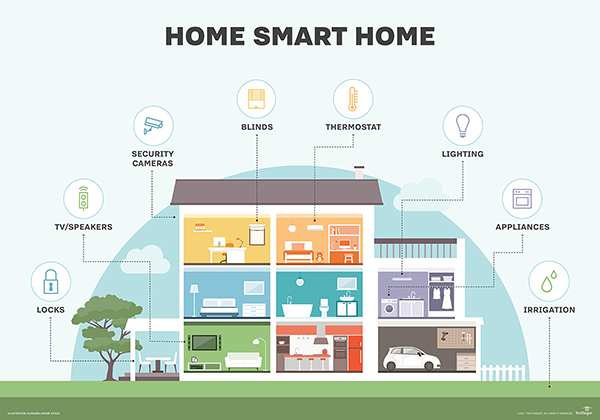
 Nimila
Nimila
